The Turner Prize 2017: Has it gone mainstream?
- Published
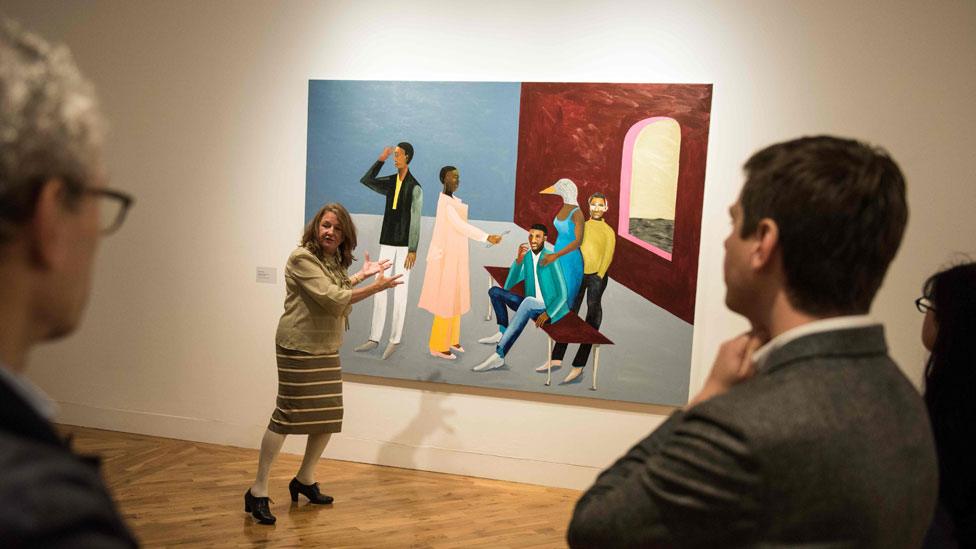
Lubaina Himid's work looks at the representation of black culture
This year's Turner Prize is an unmitigated disaster for the headline writers of Fleet Street.
There are no enormous backsides to riff off, or unmade beds on which to pour scorn - there's no shock, or sensation, no vulgarity or profanity.
In fact, the most remarkable thing about the 2017 Turner Prize is that it is unremarkable.
All four shortlisted artists can actually paint - if they chose to do so.
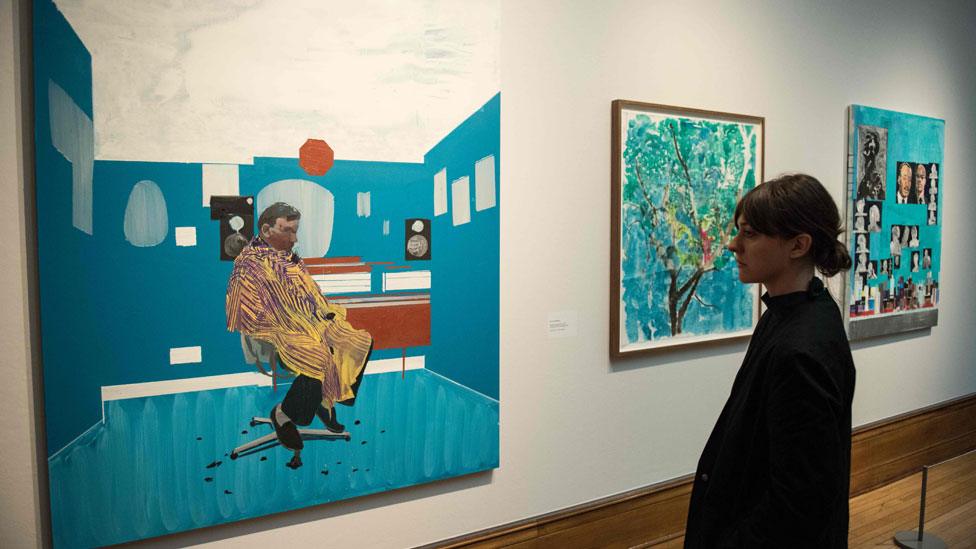
Hurvin Anderson's paintings on display include Peter's Sitters 3
They largely make their own work, and the points political and philosophical they make are expressed with sense and sensibility.
I suppose a more conservative exhibition was the inevitable outcome of removing the age restriction, allowing artists over 50 to be considered for inclusion - as indeed two have this year. The Turner Prize has grown up.

Rosalind Nashashibi's contribution consists of two evocative 16mm films
The most grown up of all is 63-year old Lubaina Himid, a Zanzibar-born painter and academic who produces flat looking tableaux, collages, canvasses and pottery pieces, all of which share the same central subject: the representation of black culture in art history and the media.
Hurvin Anderson - the other beneficiary of the lifting of the age limit - is also interested in depicting the meeting point between black and white culture, although his large-scale paintings of landscapes, portraits and still lives, are less polemical and more painterly than Himid's.
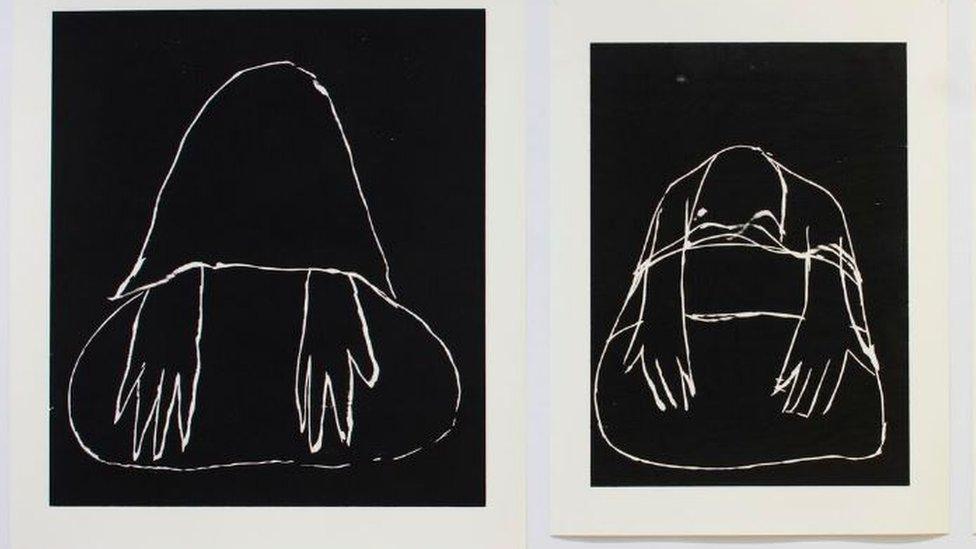
Andrea Buttner's prints are the most arresting in the exhibition
Rosalind Nashashibi paints too, but not in this exhibition.
Her contribution consists of two evocative 16mm films - one shot in Guatemala, the other Gaza - which explore domestic relationships between people and places, who are in on sense trapped and in another happily going about the banalities of everyday life.
German woodblock maker Andrea Buttner completes this year's quartet.
Actually she does a lot more than make woodblock prints, but the eight she has hanging in her gallery showing a beggar's outstretched, elongated arms pointing downwards are the most arresting images here. Her interest in poverty, humility and art history is clear and affecting.
The Turner Prize Exhibition opens on 26 September and runs until 7 January 2018 at the Ferens Art Gallery in Hull.

Follow us on Facebook, external, on Twitter @BBCNewsEnts, external, or on Instagram at bbcnewsents, external. If you have a story suggestion email entertainment.news@bbc.co.uk.
- Published18 September 2017
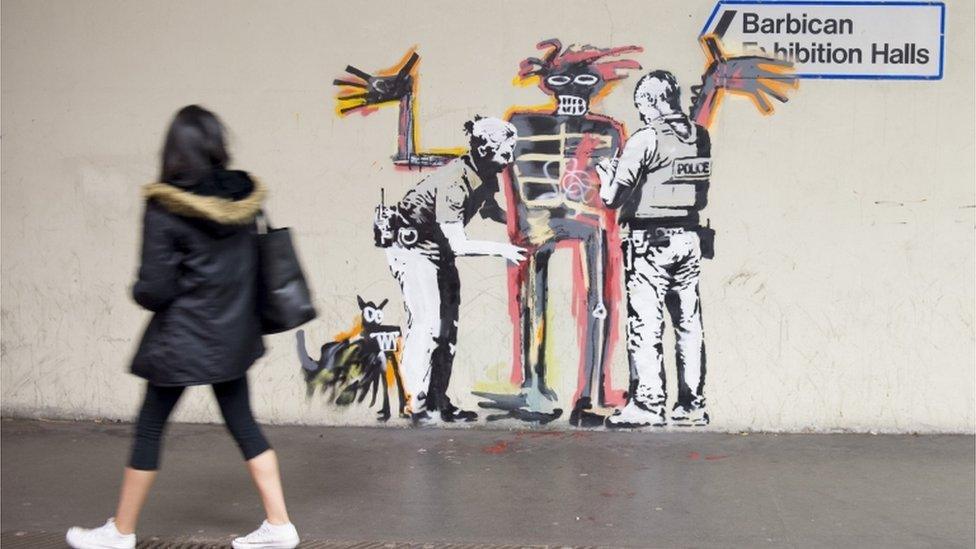
- Published19 May 2017
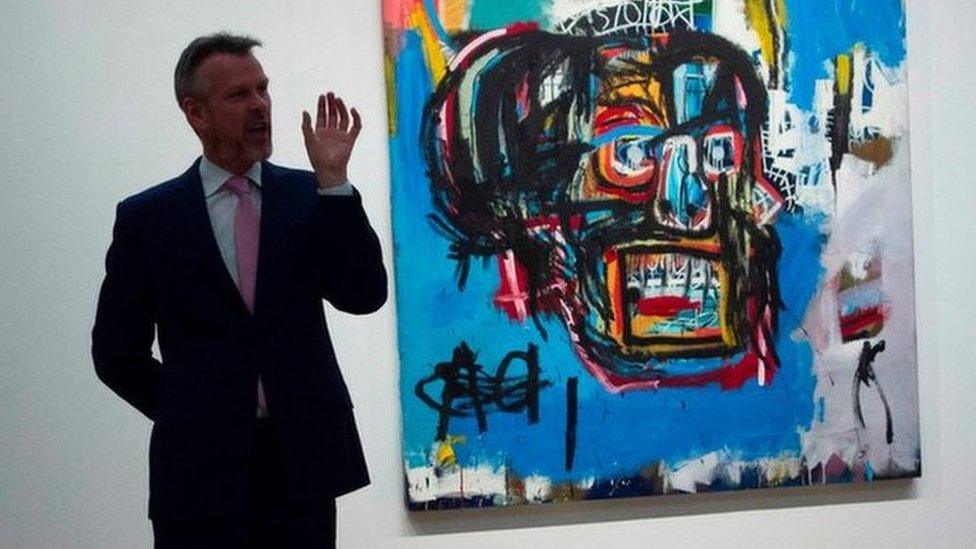
- Published19 May 2017